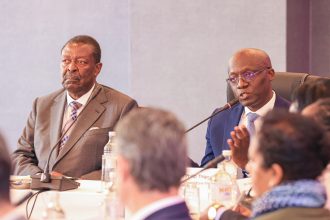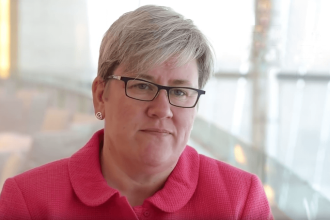The third Women’s Climate Assembly (WCA) is set to take place in Saly, Senegal, from October 7- 11, 2024 aims to strengthen and unify women-led struggles against dirty extractives and false climate crisis solutions in West and Central Africa.
According to a media release from Womin, the Assembly will propose development solutions that centre and support women, their families, and their communities to enjoy a decent life and livelihoods in a time of a deepening climate crisis.
“We are asking for them to change the system. We cannot live in this climate – everywhere is hot, there is a lot of sickness, we can no longer survive. Our plants are dying, our animals are dying. Our sea level is rising, creating coastal erosion, and taking away our houses. We need to change things and tell them, leave our climate alone!” said Oumou Koulibaly, Senegal, WCA 2023.
Africa is living the climate crisis now. The continent is being hit by heatwaves, droughts, wildfires, drying soils, cyclones, storms, locust plagues, flooding, coastal erosion, rising sea levels and other climate-related catastrophes.
Since 2000, Mozambique, Madagascar, Malawi, Zimbabwe, and Kenya have been among the hardest-hit countries in the world, even though their emissions are minimal. 2024 has been the hottest on record.
The temperature across Africa is projected to be hotter than previously experienced in the recorded past and will rise faster than the global average across most of the continent. The climate crisis has severe consequences for the African continent, its ecosystems and its peoples. The frustrating irony is that Africa is grappling with the most impacts of global heating but has contributed the least.
With the threats facing the Congo Basin and the Amazon, this year’s WCA will be an especially critical organising space for African women and communities ahead of COP29 to be held in Azerbaijan in November 2024.
Women in Africa, who are often the primary caregivers and responsible for securing food and water for their families, face the brunt of climate impacts. Despite these challenges, African women have been at the forefront of critical and resilient responses to the climate crisis. They play a pivotal role in sustainable agriculture, community leadership, and biodiversity protection.
However, their visibility and voices are too often underrepresented in national and international climate policy discussions. This is exemplified by the continued failure of the United Framework Convention on Climate Change (UNFCCC) and the Conference of Parties (COPs) to progress real solutions to the climate crisis even as the world burns.
“We need to talk to the polluters about the problems they are causing in our communities. Everywhere you turn, there are problems. After maybe six to seven years, you’ll hear about equity, but we are still here. We need to wake up and do something as women! When we sit there, they will talk over us. We need to wake up and do something that will bring justice to us,” said Abie Freeman, Liberia, WCA 2023.
The COP negotiations continue to be co-opted and undermined by transnational corporations and their government allies, stymying efforts to ensure that nations that bear historical responsibility for causing and exacerbating the climate crisis commit to urgent action—deeper carbon cuts and full provision for the loss and damage they have caused to peoples around the world who carry the most significant costs of climate heating.
This crucial African gathering will bring together over 120 women activists and community leaders from 12 countries across West and Central Africa to tackle the urgent climate crisis affecting the African continent under the theme, that African women stand together to defend our land, waters, and forests!
Last year, the Women’s Climate Assembly produced a powerful declaration, outlining demands for climate justice, reparations, and sovereignty for Africa from consultations in over seventy communities across the continent. They asserted their Right to Say NO to the destruction of their lands and forests, oceans, and rivers by so-called “development” projects that harm their ways of life and livelihoods. They also called on polluters to pay meaningful reparations informed by impacted communities for historical and ongoing climate and ecological debt owed to Africa.
Organised by a steering committee of community organisations and their allies, including Lumière Synergie pour le Développement (LSD, Senegal), Green Development Advocates (GDA, Cameroon), Kebetkache Women and Development Resource Centre (Nigeria) and WoMin African Alliance, this assembly follows two successful gatherings held in 2022 and 2023 in Port Harcourt and Lagos, Nigeria respectively.
The African Peoples Counter COP (APCC) will take place concurrently with the assembly. Convened by the Africa Climate Justice Collective (ACJC) for the last three years, the APCC is an important platform to build a unified understanding of the climate crisis, and the failed COP negotiations, and build common political action towards real solutions from an African perspective. The Women’s Climate Assembly is just one of the peoples’ climate assemblies that have traditionally taken place as part of the APCCs over the years.
WCA 2024 is a radical space for African women to share experiences, develop strategies, build solidarity across their struggles, and advocate for transformative climate action, and eco-friendly and sustainable development alternatives. At a time when Africa is bleeding, and where the Congo Basin, the “lungs of the world” as the largest rainforest in Africa, is facing an existential threat, the time for women of Africa to rise and organise is now!




